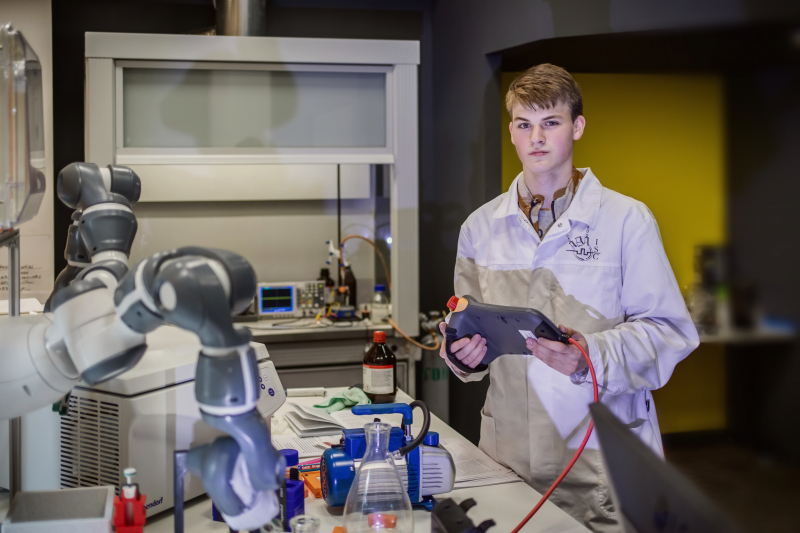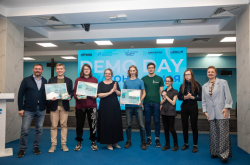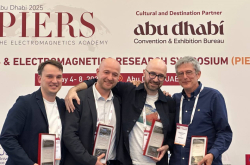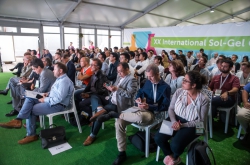Robots have long been used both in the industry and in chemical laboratories. Not only can robots weigh samples and titrate solids non-stop, but they can also generate hypotheses based on scientific discoveries and independently conduct experiments to confirm or reject their theories. Learn more about such robots here.
ITMO University, in turn, trained robots to conduct chemical experiments two years ago. Back then, the university specialists developed a special technological assistant that can perform routine tasks in a laboratory. In the long run, robot scientists are expected to conduct full-fledged studies involving big data collection and its primary analysis.
What else is new in the chemistry world? And what are the grand challenges standing in the way of robots in labs and R&D centers? These are the questions that will be brought up at the International Conference on Robotization of Chemical Technologies, which will take place on October 21-23. Aside from the lecture program, participants will also be able to attend workshops and even try to code an industrial robot on their own.
“We’re sure that novel technologies indeed help people in their daily tasks. As for chemistry, today’s robots can already run scientific experiments and even perform complex chemical reactions with no human involvement needed. Whereas infochemistry paves the way for even more discoveries in medicine, materials science, sensors, as well as food and chemical production,” note the conference’s organizers.
Program
The three-day conference will include:
- online talks by leading specialists from all over the globe;
- round-table discussions with business representatives on current issues;
- workshops on big data analysis and robot programming. Participants who successfully complete the training will be awarded certificates.
On the first day of the conference, October 21, scientists from all over the world will go live to speak about the robotization of chemical technologies, infochemistry, and AI applications. Among the key topics are the structure-based design of smart functional materials using AI, chemicals and materials databases, tools for robotic labs, and more.
The following day will be devoted to the interaction between business, science, and education and will feature a round-table talk with industrial partners that will take place at ITMO’s Lomonosova campus from 11 am to 5 pm.
And the final day of the conference will be all about the School of Young Scientists on Research Methods in Materials Science. Guided by mentors, participants will have the chance to program their own robotic lab assistant, work with chemical databases, and study nanostructures with a microscope.
Read also:
ITMO Researchers Teach Robots to Run Chemical Experiments
How to apply
The conference is designed for everyone interested in research at the intersection of chemistry and IT, including Bachelor’s and Master’s students, as well as young scientists.
Participation in the event is free of charge. The registration deadline for the conference is October 20. The school accepts applications until October 18.
More information and the application form can be found here.
Editorial team




